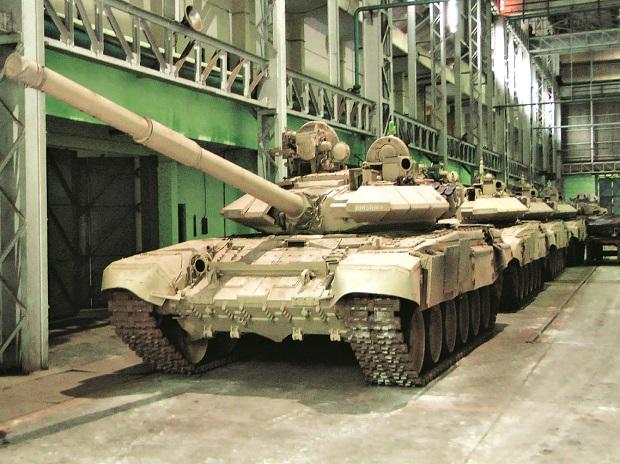
Dismantling of Ordnance Factory Board: All you need to know

The 220-year-old Ordnance Factory Board (OFB), which has been supplying arms, ammunition and clothing to Armed Forces in India, was dissolved on October 1. The assets, staff, and operations of OFB’s 41 ordnance factories will be transferred to seven defence public sector units (DPSUs) to improve the board’s accountability, efficiency and competitiveness.
The development is a result of a long-pending proposal to restructure the over 200-year-old Ministry of Defence entity. OFB manufactured hardware ranging from munitions to heavy weapons and vehicles.
Calming concerns of OFB’s employees, defence minister Rajnath Singh recently clarified that although the employees are being transferred to the new PSUs, there will be no change in their service conditions.
When the decision was made
The plan to dissolve the OFB had been on the agenda of the government for quite some time, having been proposed soon after the 2019 Lok Sabha election. The Union Cabinet approved the plan, first unveiled as part of the Atmanirbhar Bharat package, on June 16, 2021.
The seven new defence DPSUs are:
Munition India Ltd
Armoured Vehicles Nigam Ltd
Advanced Weapons and Equipment India Ltd
Troop Comforts Ltd
Yantra India Ltd
India Optel Ltd
Gliders India Ltd
Twelve factories making a wide range of munitions will be brought under Pune-based Munitions India Limited, which will manufacture ammunition and explosives, while five factories making heavy vehicles will be amalgamated under the Avadi-based Armoured Vehicles Nigam Limited.
Eight factories which make weapons ranging from small arms to rifles and field guns will be brought under the Kanpur-based Advanced Weapons and Equipment India Limited. The unit will manufacture weapons and equipment.
Four factories will be part of Troop Comforts Limited, which will oversee the manufacture of clothing and other items. Nagpur-based Yantra India Limited will oversee the functioning of eight factories that will manufacture military grade components and ancillary products, while Dehradun-based India Optel Limited will bring together three factories that will make optoelectronic items.
The Kanpur-based Ordnance Parachute Factory will be brought under Gliders India Limited, and be engaged in manufacturing parachutes. Non-production units, such as the National Academy of Defence Production and several institutes of learning, will be merged with the seven new companies, while 11 more non-production units, including regional marketing centres, will be handed over to the companies and their employees transferred to different factories, according to the order issued on September 24 by the Ministry of Defence.
The order also said that a total of 3,152.11 acres of surplus land at 16 ordnance factories will be transferred to the directorate of ordnance (coordination and services). As for the employees, the order said that the new companies are “required to frame rules and regulations related to service conditions of the absorbed employees and seek an option for permanent absorption from the employees on deemed deputation to that respective DPSU, within a period of two years”.
While the Kolkata-based OFB was established in April 1979, the history of some ordnance factories goes back hundreds of years. Some of the oldest factories in West Bengal were set up in the 18th century.
Atmanirbhar push
The government has allocated Rs 70,221 crore – 63 per cent of the military’s capital budget – for the purchase of weapons and systems made in India.
In a bid to boost defence indigenisation, the Ministry of Defence recently cleared domestic military purchases worth ₹13,700 crore, including proposals to buy 118 Arjun Mk-1A tanks. The new tanks alone will cost ₹8,380 crore and the order will be fulfilled by state-run factories.
The restructuring of OFB is not a new idea as turning the companies into corporate entities was recommended by at least three expert committees on defence reforms — the TKS Nair Committee (2000), Vijay Kelkar Committee (2005), and Vice Admiral Raman Puri Committee (2015). A fourth committee, constituted by former Defence Minister Manohar Parrikar, did not recommend corporatisation, but suggested regular audits of all ordnance units. Corporatisation was pushed for on the ground that it would bring the entities under the purview of The Companies Act, which, in turn, would lead to improvements in efficiency, make products cost-competitive, and enhance quality of manufactured products.
Functioning directly under the Ministry of Defence, the OFB and its factories could not retain profits, and thus had no incentive to work towards increasing them, many have argued.
Opposition from workers
Fearing job losses, workers’ federations had opposed corporatisation calling it a step towards privatisation. They argued that the factories have proven their worth as a “war reserve”.
The almost 75,000 workers at the 41 OFB factories and allied are largely affiliated to three federations: the All India Defence Employees’ Federation (AIDEF), the Indian National Defence Workers’ Federation, and the Bharatiya Pratiraksha Mazdoor Sangh (BPMS). The three workers’ federations had formed a joint front to oppose the move, first proposed by the BJP-led central government in 2019.
In October 2020, the government declared a proposed strike by workers’ federations as illegal. Several rounds of talks between the two groups failed to break the impasse. In June 2021 the government announced that the OFB would be split into seven DPSUs.
Allaying concerns raised by workers, on August 2, minister of state for Defence Ajay Bhatt told Rajya Sabha in a written reply: “The employees…shall continue to be subjected to all rules and regulations as are applicable to the Central Government servants. Their pay scales, allowances, leave, medical facilities, career progression and other service conditions will also continue to be governed by the extant rules, regulations and orders, as are applicable to the Central Government servants. The pension liabilities of the retirees and existing employees will continue to be borne by the government.”
AIDEF and BPMS marked October 1 as Black Day.


